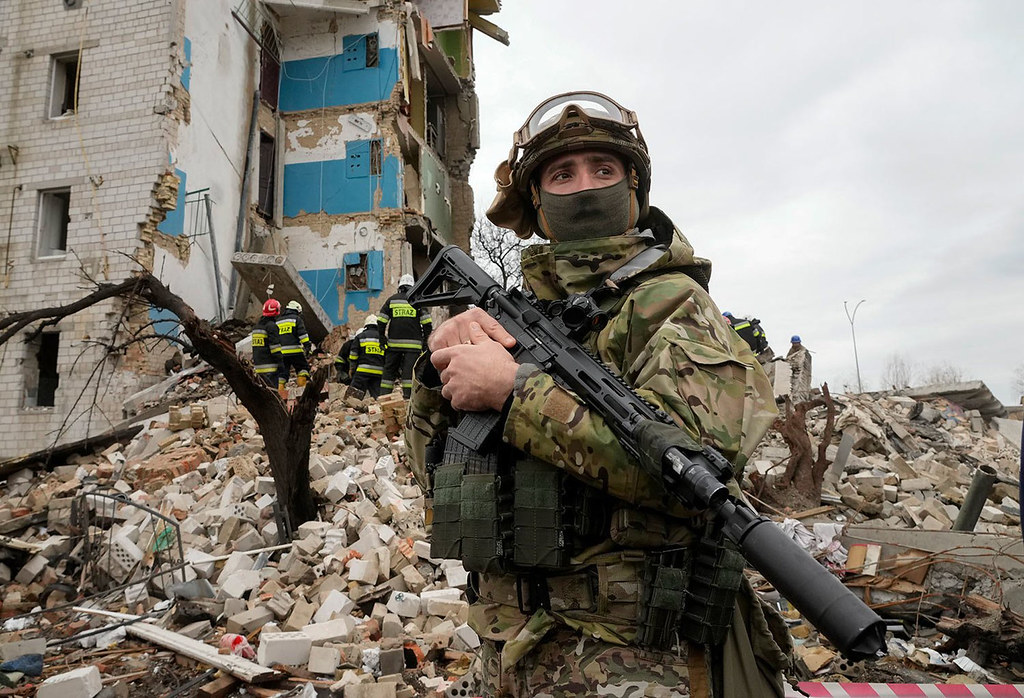KYIV (Parliament Politics Magazine) – As the Ukraine war enters its 110th day, the following is a quick summary on the events and everything major that occurred.
- After a fire broke out inside the Azot chemical factory, where hundreds of civilians are taking shelter, Russian soldiers have taken control of the majority of Severodonetsk. The occupiers’ key tactical goal had not changed: they were pressing in Severodonetsk, where severe fighting was ongoing – literally for every metre, said the Ukrainian President Volodymyr Zelenskiy in his nightly video address, adding that Russia was attempting to deploy reserve forces to the Donbas region. The Ukrainian military are said to be in control of an industrial zone.
- On Sunday, Russian cruise missiles destroyed a big depot carrying US and European armaments in Ternopil, western Ukraine, according to Russia’s defence ministry. The ministry said that the operation had destroyed a huge storage of anti-tank missile systems, portable air defence systems, and shells delivered to the Kyiv government by the US and European countries. The Ukrainian officials, however, rejected this claim. The attack, according to Ternopil’s regional governor, damaged several residential buildings and injured 22 people, including seven women and a 12-year-old.
- According to local reports, a bridge connecting the besieged eastern city of Severodonetsk to its twin city of Lysychansk was destroyed by the Russian forces, cutting off a viable evacuation route for people. The governor of Luhansk province, Serhiy Haidai, stated on Sunday that the Russian military had demolished a bridge connecting the two cities across the Siverskyi River.
- Russia has been accused of war crimes in Kharkiv, second largest city of Ukraine, by Amnesty International. Hundreds of people have been killed by Russian shelling employing globally banned cluster munitions and fundamentally inaccurate rockets, according to a new assessment released on Monday by the organisation. Russian forces had launched an indiscriminate bombardment campaign against Kharkiv. They had shelled residential areas nearly every day, killing and wounding hundreds of civilians and wreaking havoc, frequently with widely prohibited cluster munitions, it said.
- Turkey’s security concerns in opposing Sweden and Finland’s Nato membership aspirations are genuine, according to Nato Secretary General Jens Stoltenberg. Those were legitimate concerns. It was about terrorism and weapons exports, Stoltenberg said during a press conference in Finland on Sunday.
- The bodies of several Ukrainian combatants slain during the siege of the Azovstal steelworks in Mariupol, Ukraine’s southern city, are still being recovered, according to the former commander of the Azov National Guard regiment.
- In Sievierodonetsk, a former British soldier was killed fighting Russian forces. Jordan Gatley was shot and died in Ukraine, according to the British Foreign Office. He left the British army in March to pursue other opportunities as a soldier, according to his father, Dean, who said he had been assisting Ukrainian troops in their fight against Russia.
- Friends and family of Brahim Saadoun, a 21-year-old Moroccan sentenced to death alongside two British citizens last week, have called for his release, telling the Guardian that he was an active-duty marine, not a mercenary, as Russian media and pro-Russian officials in eastern Ukraine claimed when the sentence was announced.
- On Sunday, Turkish President Recep Tayyip Erdoğan said that new discussions with Ukrainian President Volodymyr Zelenskiy and Russian President Vladimir Putin could take place. Perhaps in the next week, they would talk about what steps they would take by meeting with both Mr Putin and Mr Zelenskiy, he said, referring to possible remedies to the war’s stifled exports.
- Ever since the Cold War, for the first time now, the worldwide nuclear arsenal is anticipated to expand in the next few years, and the chance of such weapons being deployed is at an all-time high, according to a prominent conflict and armaments think tank. According to the Stockholm International Peace Research Institute, Ukraine’s invasion by Russia and Western support for Kyiv have increased tensions among the world’s nine nuclear-armed countries.
- Although obstacles have hampered the supply chain, Ukraine has devised two channels through Romania and Poland to export grain and avert a worldwide food crisis, according to what Kyiv’s deputy foreign minister said on Sunday.
- At a World Trade Organisation summit on Sunday, world trade ministers convened to address the challenge of food security posed by the Russian invasion of Ukraine. Ministers are expected to reach an agreement on a joint declaration on food security, in which they promise to take meaningful steps to facilitate trade and improve the functioning and long-term resilience of global food and agriculture markets.
- President of the European Commission Ursula von der Leyen emphasised the need of Ukraine’s anti-corruption laws being strengthened. There still had to be reforms undertaken, for example, to fight corruption or to modernise the government, which would help attract investors, von der Leyen said after meeting with Zelenskiy.
- Ukraine will receive ten Talon sapper robots from the British defence company QinetiQ for de-mining operations, Ukrainian authorities stated on Sunday. Talon would be sent to de-mine Ukraine, stated Oleksiy Biloshitsky, the first deputy commander of Ukraine’s patrol police. That was a sapper robot that didn’t only find but also neutralised ‘gifts.’ They already had more than a dozen before the war, and QinetiQ would supply ten more, he said.
- McDonald’s outlets in Moscow have reopened under new Russian ownership and a new name: Vkusno & Tochka, which means “tasty and that’s it.” On Russia Day, a celebration commemorating national pride, the re-openings took place.






